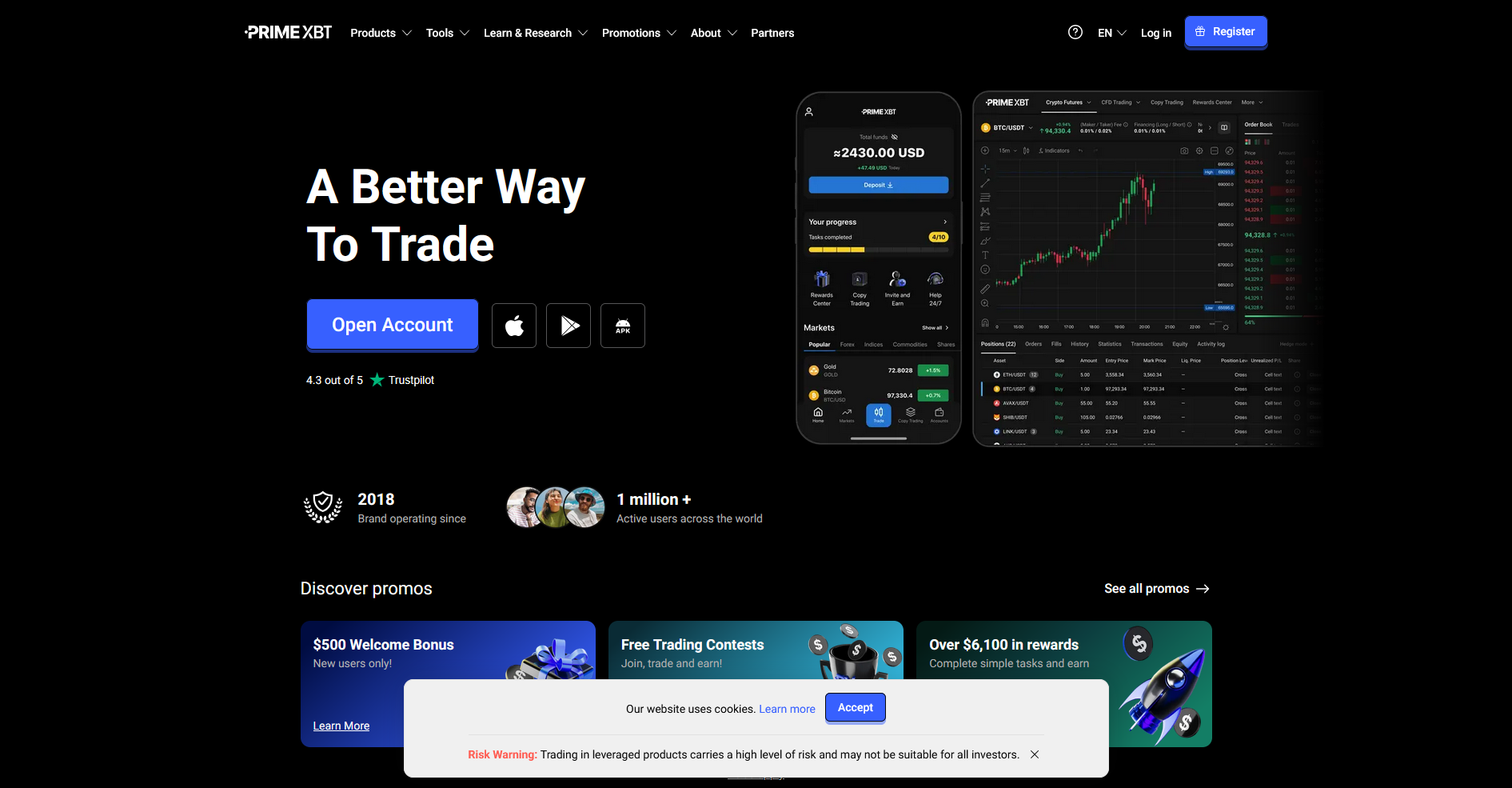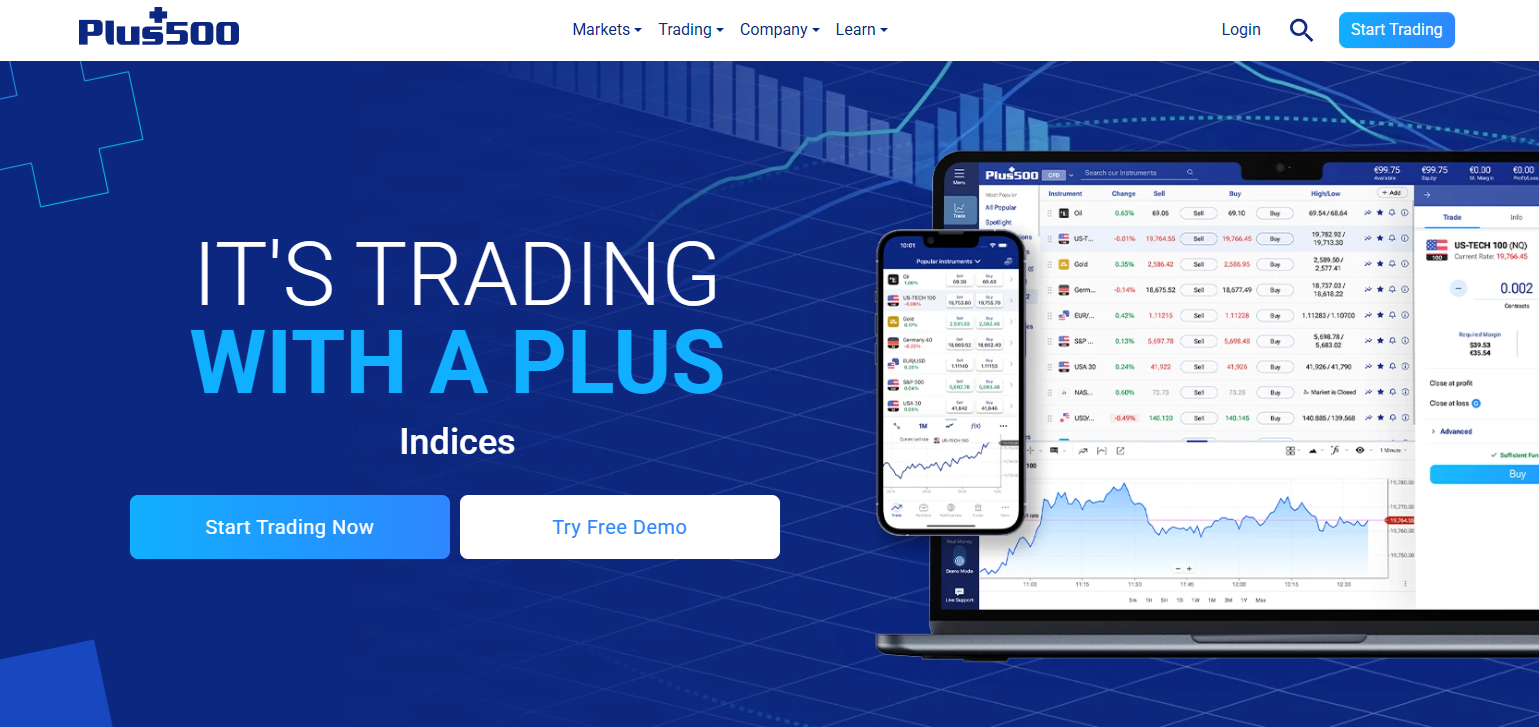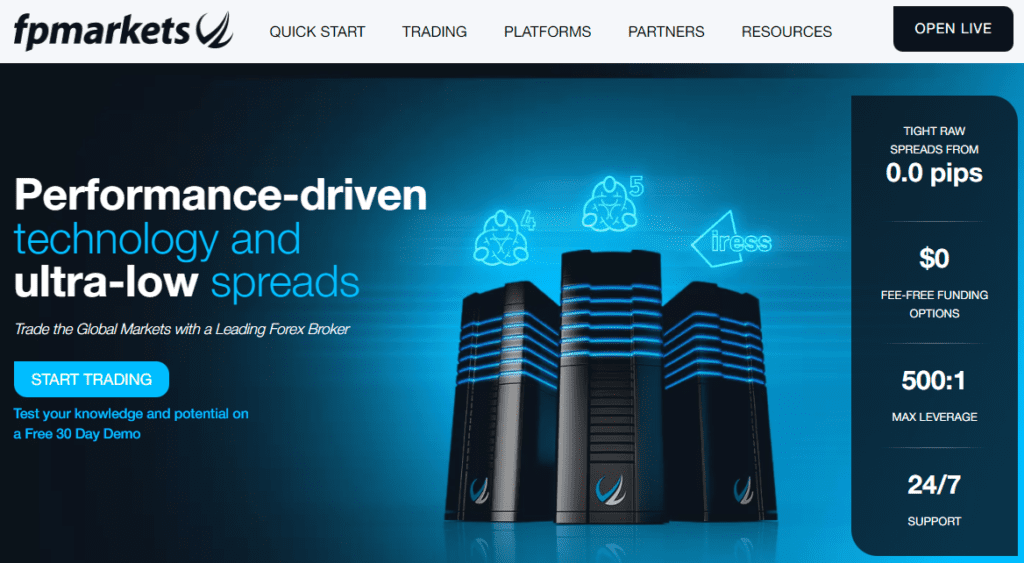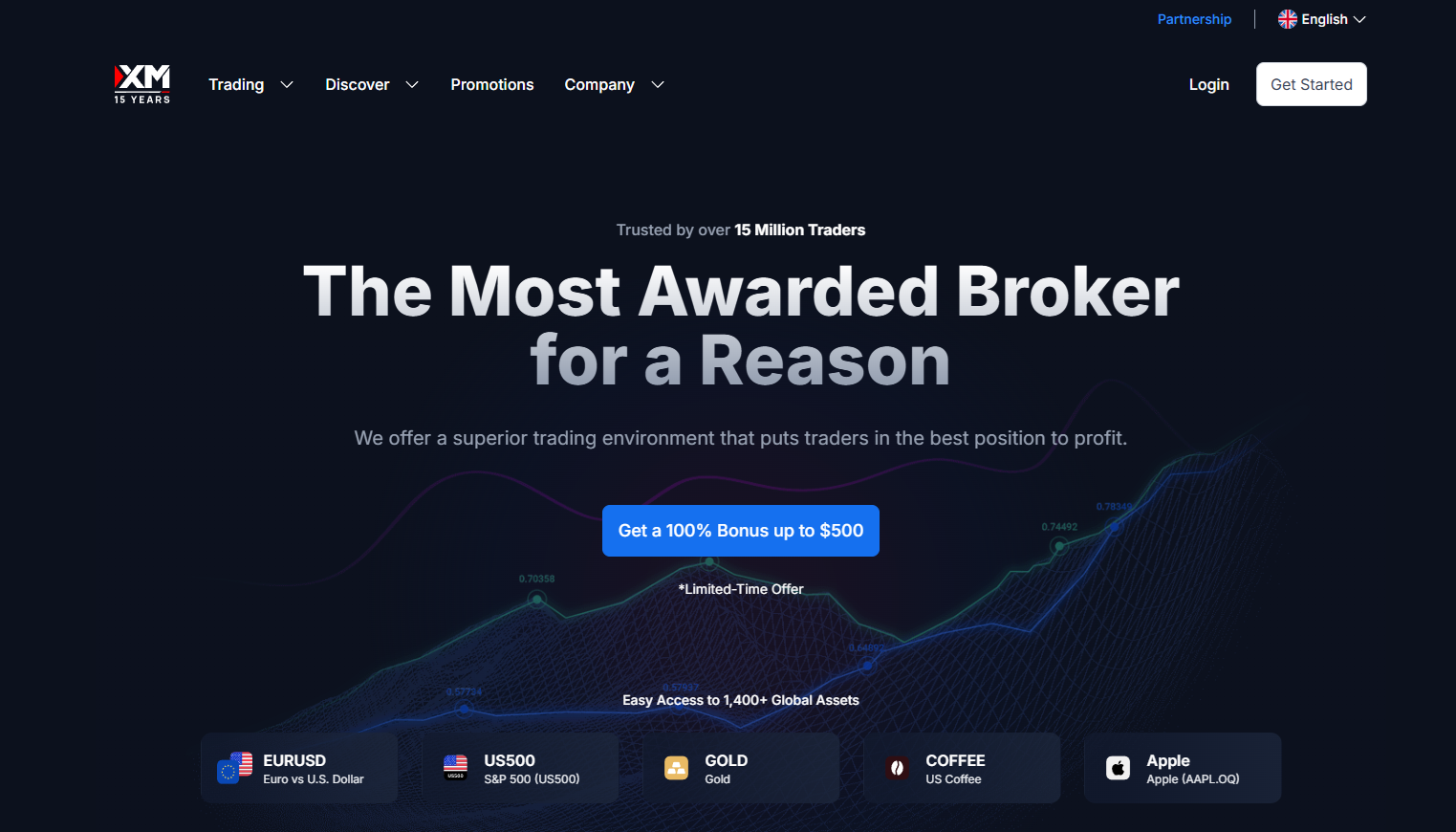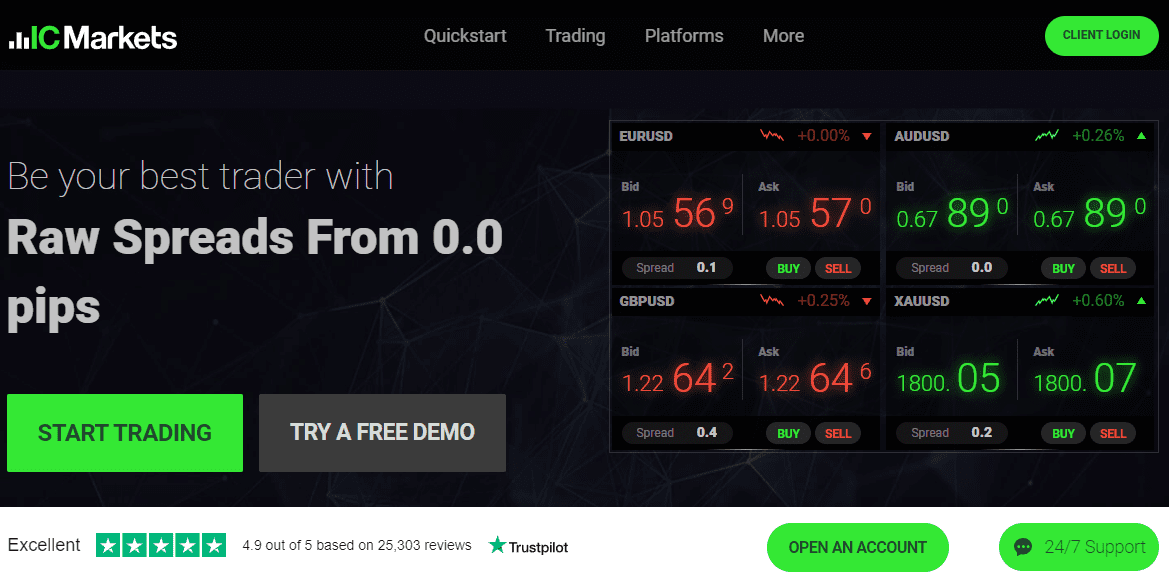When it comes to forex trading in South Africa, choosing the right broker can make all the difference. With a variety of options, finding the best forex brokers in South Africa for 2026 might seem overwhelming. But don't worry, we've done the research to highlight the top forex brokers in South Africa that are trusted by many South African traders. Whether you’re looking for a broker with low minimum deposit requirements or one that offers advanced trading platforms, it’s essential to consider what suits your trading style best.
The brokers we recommend are all regulated by the FSCA (Financial Sector Conduct Authority), ensuring they meet local regulations. Plus, each broker offers unique features, from low trading costs to responsive customer support and convenient deposits and withdrawals in ZAR. In this guide, we’ll break down what you can expect from the best forex brokers so you can start trading with confidence. Let’s dive in!
Why Choosing the Right Forex Broker Matters
When you’re picking a forex broker in South Africa, there are a few key factors to keep in mind. The broker you choose will directly impact your trading experience, so making an informed decision is critical.
Importance of Regulation by the Financial Sector Conduct Authority (FSCA)
The first thing to check is whether the broker is regulated by the FSCA (Financial Sector Conduct Authority). This regulation ensures that the broker operates within legal boundaries and offers a secure trading environment for South African traders. When a broker is regulated by the FSCA, it means they’re following strict guidelines to protect your funds. Avoiding unregulated brokers is crucial, as trading with them can lead to major risks, including the high risk of losing your money with no safety nets.
Key Factors to Consider
Once you’ve confirmed the broker’s regulation, it’s time to look at their trading platforms and overall costs. You’ll want a broker that offers a wide range of platforms, like MetaTrader 4 or 5, which are known for their powerful tools and ease of use. The trading platform is where you’ll manage all your trades, so it needs to be reliable and intuitive.
In addition, keep an eye on trading costs. Some brokers advertise low spreads but might charge high commissions or other hidden fees. Make sure the fee structure is clear and fits your budget, so you’re not surprised later. It’s also worth checking out the broker’s customer support—you want a broker that offers responsive help when you need it, whether through live chat, phone, or email.
Ensure Your Broker Offers ZAR Accounts for Easy Withdrawals and Deposits
If you’re trading in South Africa, one key feature to look for is whether the broker offers ZAR accounts. This can make your deposits and withdrawals much easier, as you’ll be able to transact in your local currency without worrying about conversion fees. Brokers offering ZAR accounts save you both money and time by streamlining the process. It's especially helpful for South African traders who want to manage their funds locally with minimal hassle.
The 15 Best Forex Brokers in South Africa
#1. PrimeXBT: Best Overall for South African Traders
What is PrimeXBT?
PrimeXBT is a multi-asset CFD and crypto trading platform that now holds a licensed Financial Services Provider (FSP) status from the South African Financial Sector Conduct Authority (FSCA, license no. 45697) and has expanded its licence to cover crypto services in South Africa as well. It offers access to forex, indices, commodities, stock CFDs, crypto futures and crypto exchanges, across platforms like MT5, WebTrader and PXTrader, with features like deep liquidity, high leverage, tight spreads, and integrated crypto <> fiat conversion tools.
Advantages and Disadvantages of PrimeXBT
PrimeXBT Fees and Commissions
In South Africa, PrimeXBT charges zero commissions on CFD trades and offers spreads on forex, indices, commodities, and stocks from as low as 0.1 pips. For crypto futures, the platform uses a maker/taker model, with maker fees starting at 0.01 % and taker fees at 0.015 % in many cases. Traders holding leveraged CFD or crypto positions overnight incur swap/financing (funding) fees, which vary depending on the instrument and position direction. PrimeXBT also offers VIP tier discounts (e.g., 25 % or more off taker fees) for high-volume trading over 30-day periods.
OPEN AN ACCOUNT NOW WITH PRIMEXBT AND GET YOUR WELCOME BONUS
#2. Plus500
What is Plus500?
Plus500 is a leading provider of Contracts for Difference (CFDs), offering trading facilities on shares, forex, commodities, indices, and more. The company operates through various subsidiaries, each authorized and regulated by financial authorities in their respective jurisdictions. In South Africa, Plus500AU Pty Ltd is authorized as a Financial Services Provider (#47546) by the Financial Sector Conduct Authority (FSCA). This regulatory oversight ensures that Plus500 adheres to stringent rules designed to protect retail clients. The platform is known for its user-friendly interface, advanced charting tools, and real-time alerts, enabling traders to make informed decisions efficiently. Additionally, Plus500 offers a seamless transition between demo and real-money trading modes, allowing users to test strategies before committing capital. These features, combined with robust regulatory compliance, make Plus500 a preferred choice among traders in South Africa.
Advantages and Disadvantages of Plus500
Plus500 Commissions and Fees
Plus500 primarily earns revenue through the “market spread” and does not charge commissions on trades. However, traders should be aware of additional fees that may apply. An overnight funding fee is either added to or subtracted from your account when holding a position after a specified time. Additionally, a currency conversion fee of up to 0.7% is applied to trades on instruments denominated in a currency different from your account's base currency. While Plus500 covers most payment processing fees, on rare occasions, you may incur charges from your payment issuer or bank when transferring money to and from your Plus500 account. Notably, Plus500 does not charge deposit or withdrawal fees, and there are no commissions on trades. However, an inactivity fee of $10 per month is charged if you do not log in to your account for three months. These fee structures contribute to Plus500's reputation as a cost-effective trading platform in South Africa.
OPEN AN ACCOUNT NOW WITH PLUS500 AND GET YOUR WELCOME BONUS
OPEN A DEMO ACCOUNT ON PLUS500
#3. FP Markets
What is FP Markets?
FP Markets is a well-known forex and CFD broker that has been providing traders with access to global markets since 2005. Regulated by the FSCA in South Africa, FP Markets is favored by South African traders for its low spreads, robust platform choices, and strong customer support. The broker is highly regarded for its ECN pricing model, which delivers tight spreads and fast trade execution, making it a great option for both beginners and advanced traders. With MetaTrader 4, MetaTrader 5, cTrader, and Iress available, FP Markets offers a comprehensive suite of tools to help traders succeed, making it one of the best brokers in South Africa.
Advantages and Disadvantages of FP Markets
FP Markets Fees and Commissions
When trading with FP Markets in South Africa, you can expect low fees and a flexible cost structure. The Raw account offers spreads starting from 0.0 pips, with a $3.50 commission per lot traded, while the Standard account features commission-free trading with spreads starting from 1.0 pips. The minimum deposit is $100 (around R1823), and there are no deposit fees, though some withdrawal methods might incur small charges. With leverage up to 1:500 and a wide range of tradable instruments, including 70+ forex pairs, FP Markets ensures a cost-effective and efficient trading environment for South African traders.
OPEN AN ACCOUNT NOW WITH FP MARKETS AND GET YOUR WELCOME BONUS
#4. XM
What is XM?
XM is a well-established forex and CFD broker that has gained popularity in South Africa due to its strong regulatory oversight and range of trading options. XM is regulated by the CySEC, FSC, FSA, DFSA, FSC, and FSCA, ensuring it meets the legal requirements for safe and secure trading in the country. One reason why XM stands out is its low minimum deposit of just $5, which makes it accessible to beginners. It also provides access to popular MetaTrader 4 and 5 platforms, offering a seamless trading experience across desktop, web, and mobile devices. With a wide variety of trading instruments, including 57 forex pairs and CFDs on stocks, indices, and commodities, XM remains a top choice for South African traders looking for a reliable broker.
Advantages and Disadvantages of XM
XM Fees and Commissions
XM offers commission-free trading on its Micro and Standard accounts, with spreads starting from 1.6 pips for major currency pairs. For lower costs, the XM Ultra-Low account offers spreads starting from just 0.6 pips. There are no deposit or withdrawal fees, which is a big plus for traders managing multiple transactions. However, XM does charge an inactivity fee if no trades are made for over three months, but it's a modest fee of 85 ZAR. With competitive spreads, flexible account types, and high leverage of up to 1:1000, XM offers excellent value for both new and experienced traders in South Africa.
OPEN AN ACCOUNT NOW WITH XM AND GET YOUR WELCOME BONUS
#5. IC Markets
What is IC Markets?
IC Markets is a globally recognized forex and CFD broker known for its reliability, low-cost trading environment, and a wide range of trading tools. Established in 2007, IC Markets is a top choice for South African traders due to its access to popular platforms like MetaTrader 4, MetaTrader 5, cTrader, and TradingView. While IC Markets is not regulated by the FSCA, it is licensed by other top regulators such as ASIC and CySEC, making it a trustworthy option. The broker is well-suited for traders who want tight spreads, fast execution, and a robust platform for algorithmic trading.
Advantages and Disadvantages of IC Markets
IC Markets Fees and Commissions
IC Markets offers commission-free trading on its Standard account, with spreads starting at 0.8 pips. For traders looking for even lower costs, the Raw Spread account features spreads from 0.0 pips, with a commission of $7 per standard lot round turn. There are no deposit or withdrawal fees, and IC Markets also does not charge any inactivity fees, making it a highly competitive broker for South African traders looking for cost-efficient trading. Additionally, IC Markets provides access to a wide range of assets including forex, stocks, indices, commodities, and cryptocurrencies.
| Rank | Broker | Description |
| 6 | Fusion Markets | Fusion Markets is recognized in South Africa for its ultra-low commissions, tight spreads, and transparent pricing on both Classic and Zero accounts. Regulated by the FSCA, it offers MetaTrader 4/5 and TradingView for comprehensive trading, with leverage up to 1:500. The broker provides free deposits and withdrawals, efficient onboarding, and responsive customer service. While educational content is limited, Fusion Markets stands out for cost-sensitive, active traders and those seeking reliable execution. |
| 7 | BlackBull Markets | BlackBull Markets provides South African traders with ECN trading, spreads from 0.0 pips, leverage up to 1:500, and high liquidity. The broker accepts ZAR deposits and operates with New Zealand regulation, making it trusted for its fast and transparent execution. With access to MT4/5, TradingView, and over 26,000 markets, it suits both professionals and active retail traders. Its main drawback is less extensive beginner education. |
| 8 | Global Prime | Global Prime is popular in South Africa for transparency, institutional-grade liquidity, and exceptional customer service. Regulated by the FSCA, it has a strong reputation for low spreads, fast account setup, and direct access to liquidity providers on MT4 and TradingView. It offers a unique trade receipt feature for accountability and fosters a learning community. Global Prime is ideal for serious traders seeking full transparency and technical support. |
| 9 | Hantec Markets | Hantec Markets is well-regarded for serving South Africa with no deposit or withdrawal fees, competitive spreads, and comprehensive market coverage. Regulated in multiple regions including FSCA, it provides fast execution on MT4/5 and WebTrader, and responsive support. The broker appeals to those wanting simplicity, regulatory safety, low costs, and multi-asset exposure. |
| 10 | Vantage | Vantage, FSCA-compliant, offers user-friendly access, competitive spreads, and leverage up to 1:500. It supports MT4/5 and WebTrader and provides a broad range of instruments. The broker stands out for quick withdrawals, no inactivity fees, and effective trading tools. Vantage is suited to a wide range of profiles, though its educational offer lacks depth compared to some rivals. |
| 11 | Pepperstone | Pepperstone is a trusted name with strong FSCA regulation in South Africa. Known for its tight spreads, low commissions, and range of trading platforms (MT4/5, cTrader), Pepperstone supports ZAR accounts, fast onboarding, and reliable execution. It appeals to traders who want high-performance standards and local support. |
| 12 | Axi | Axi is FSCA-regulated, offering zero commission on standard accounts and full digital onboarding. The broker focuses on transparent conditions, MetaTrader compatibility, low deposit requirements, and streamlined deposits/withdrawals. Axi fits traders seeking regulation, simplicity, and account flexibility, even if proprietary platform features are limited. |
| 13 | VT Markets | VT Markets is favored for fast setups, competitive costs, and robust client support. With FSCA oversight, MT4/5 platforms, and ZAR account options, it’s suitable for beginners and intermediates looking for easy access and honest pricing. Advanced features may be less comprehensive than leading competitors. |
| 14 | GO Markets | GO Markets delivers tight spreads, reliable trading platforms, and swift account opening, all with global regulatory protections. The broker supports MT4/5 and no withdrawal charges, making it best for traders who favor stability and essential brokerage services over extensive research or education tools. |
| 15 | Exness | Exness stands out in South Africa for its seamless account setup, competitive fees (no deposit/withdrawal charges, low spreads), and FSCA regulation. With multi-platform support and ZAR-based options, it’s ideal for a range of trading levels, especially those valuing reliability, simple conditions, and instant fund transfers. |
OPEN AN ACCOUNT NOW WITH IC MARKETS AND GET YOUR WELCOME BONUS
How to Get Started with a Forex Broker in South Africa
Step 1: Choose a Forex Broker
First, you need to pick a forex broker. Look for brokers that are regulated by the FSCA (Financial Sector Conduct Authority) to ensure your funds are safe. Popular brokers in South Africa include AvaTrade, IC Markets, and FP Markets. Each has its own benefits, so choose one that matches your needs in terms of trading platforms and costs.
Step 2: Open Your Trading Account
Once you’ve chosen a broker, head to their website and click on the “Open Account” button. You’ll be asked to fill out a registration form with basic details like your name, email, and phone number. After that, you’ll select whether you want a demo or live account.
Step 3: Verification Documents
Before your account can be fully activated, you’ll need to submit some verification documents. Most brokers require the following:
- ID proof (passport or driver’s license).
- Proof of residence (a utility bill or bank statement not older than 3 months).
These documents help confirm your identity and ensure your account is secure.
Step 4: Fund Your Account
Once your account is verified, it’s time to add funds. Most brokers offer multiple ways to deposit, including bank transfers, credit cards, and e-wallets like PayPal or Skrill. Make sure to check if your broker offers ZAR accounts, so you can deposit and withdraw in South African Rand, saving you from currency conversion fees.
Step 5: Choose Between Demo and Live Accounts
If you’re new to forex trading, starting with a demo account is a good idea. It lets you practice without using real money. Once you’re comfortable, you can switch to a live account, where you’ll be trading with actual funds. This is where you’ll need to stay mindful of your strategy and risks.
Conclusion
Starting your forex trading journey in South Africa can be straightforward if you follow the right steps. Choosing a regulated forex broker is crucial for the security of your funds, and ensuring they offer features like ZAR accounts can make your trading more convenient. Opening an account involves basic steps like registration, providing verification documents, and funding your account with methods like bank transfers or e-wallets. If you’re new to trading, using a demo account is a smart way to practice before going live. With the right broker and approach, you’ll be well-prepared to dive into the forex market.
Also Read: The 5 Best Forex Brokers in Singapore in 2026
FAQs
1) What is a forex broker and how does forex trading work in South Africa?
A forex broker provides the platform and access to trade currency pairs. In South Africa, residents typically trade through FSCA-authorized brokers, funding accounts in ZAR or major currencies. If you’re new to the mechanics (pips, leverage, spreads), start with this primer on what forex trading is and how it works.
2) Which regulator oversees forex brokers in South Africa?
The Financial Sector Conduct Authority (FSCA) supervises financial services firms, including brokers that market to South African clients. Traders should verify that a broker displays a valid FSCA license number and matches the name on the FSCA register. See how regulation fits into your due diligence inside our guide to picking the right forex broker.
3) How do I find the best forex brokers for South African traders?
Assess FSCA licensing, trading costs (spread + commissions), platform choice, order execution, deposit/withdrawal options, and support. For a curated starting point, explore our roundup of the best stock/forex brokers in South Africa and the dedicated list of the best forex brokers in South Africa.
4) Are ECN accounts available to South African clients?
Many global brokers offer ECN or “raw” accounts that route orders to liquidity providers with tight spreads plus a commission. Learn how ECN models differ and what to check in our deep dive on ECN forex brokers.
5) What trading platforms do SA traders typically use (MT4/MT5/cTrader/TradingView)?
The common options are MT4, MT5, cTrader, and increasingly TradingView integrations. Each platform has unique tools, order types, and algo support. Compare compatible brokers here: best TradingView brokers and best cTrader brokers.
6) What account base currency is best, ZAR or USD/EUR?
ZAR accounts can simplify local funding and avoid some conversion fees. USD/EUR accounts can offer tighter institutional pricing and broader product access. Weigh the trade-offs alongside your costs and strategy using this overview of spreads, commissions, and pricing.
7) How much leverage do brokers offer in South Africa?
Leverage varies by broker, instrument, and your profile. Higher leverage increases both potential gains and losses. Understand leverage’s impact on risk in our guide to what leverage means in forex and how to set a risk-reward ratio.
8) What is a good spread for major pairs like EUR/USD or USD/JPY?
On “raw/ECN” accounts, top-tier pricing often shows 0.0–0.3 pips at peak liquidity (plus commission). Standard accounts quote wider, commission-free spreads. See how to evaluate brokers by spread quality in lowest spread forex broker and refine execution with bid-ask spread basics.
9) What fees should I compare beyond the spread?
Check commissions, swaps/overnight financing, conversion fees, inactivity charges, and withdrawal costs. This primer on swap/rollover in forex helps you anticipate overnight costs.
10) How do I verify a broker’s safety and reputation?
Confirm regulation, review client fund segregation, assess negative balance protection, and read independent reviews. Our step-by-step framework: picking the right forex broker. Also learn the tell-tale scam red flags.
11) What are common scam signs South African traders should watch for?
Promises of “guaranteed” returns, aggressive DMs, pressure to deposit via crypto only, and withdrawal blockages are classic red flags. See our research-backed warnings about unregulated brokers and scams and specific scam alerts compiled on the site (search “scam” articles for case studies).
12) Do South African brokers offer Islamic (swap-free) accounts?
Many do. Check the broker’s account types and whether swap-free terms apply to all instruments or only certain pairs. Strengthen your framework with the guide on whether forex is halal or haram.
13) What minimum deposit is typical?
It ranges from $0–$500 depending on broker and account type. Avoid funding more than you can afford to lose, and pair deposits with strict risk management.
14) What’s the best way to fund and withdraw in South Africa?
Look for instant EFT, bank transfer, reputable card processors, and clear withdrawal SLAs. Confirm any currency conversion fees and cut-off times. Use our checklist for money management in trading.
15) Which order types should I master first?
Start with market, limit, stop, and trailing stop orders. These help you control slippage and automate exits. Learn the nuances of buy limit vs buy stop and how to deploy trailing stops.
16) What account type suits beginners, standard, raw/ECN, or cent?
Beginners often prefer standard (no commission, simpler pricing) or cent (very small trade sizes). More advanced traders gravitate to raw/ECN for tighter spreads. See how account choice ties to your position sizing and lot size.
17) Can South Africans copy trade or use social trading?
Yes, many brokers offer copy, signals, and social features. Understand the pros/cons in our guides to trading signals and social trading.
18) Do brokers allow automated trading or EAs?
Most MT4/MT5 and cTrader brokers allow EAs/algos, subject to their terms. Before you automate, review our primer on trading robots and common algorithmic strategies.
19) Which pairs are most liquid for SA traders?
EUR/USD, GBP/USD, USD/JPY, USD/ZAR, and XAU/USD are widely traded. Liquidity conditions vary by session; spreads usually tighten during London/NY overlaps. Get a feel for popular instruments via most volatile forex pairs.
20) What is slippage and how do I reduce it?
Slippage is the difference between your requested price and the executed price, common in fast markets. Use limit orders, trade during high-liquidity hours, and choose brokers with strong execution. See our walkthrough of slippage in trading.
21) Is scalping allowed in South Africa?
Most brokers serving SA allow scalping, but confirm their policies on time-in-trade and minimum distance rules. If scalping is your style, shortlist from the best forex brokers for scalping.
22) What is the difference between market maker and ECN/STP brokers?
Market makers internalize flow and quote prices; ECN/STP pass orders to external liquidity with variable spreads + commission. Compare models and pitfalls in ECN forex brokers and our broker selection guide.
23) How do swaps/overnight fees work on ZAR crosses?
Swaps reflect interest rate differentials and broker markups, recalculated daily. ZAR pairs can carry higher swaps due to rate spreads. Learn the mechanics in what is swap in forex.
24) Do South African traders pay tax on forex profits?
Generally, trading gains are taxable under South African law. Keep accurate records and consult a qualified tax professional. Meanwhile, apply disciplined money management to separate capital from tax reserves.
25) Are bonus offers and promotions safe?
Bonuses often come with withdrawal restrictions and volume conditions. Read T&Cs carefully and prioritize core trading costs and execution quality. Use our neutral framework: picking the right forex broker.
26) What is negative balance protection and do SA traders get it?
NBP prevents your balance from going below zero after extreme moves. Many brokers offer it, but terms differ. Confirm in the legal docs and client agreement. See also how to think about risk appetite and risk tolerance.
27) How can I build a robust trading plan before choosing a broker?
Define markets, timeframes, setups, entries/exits, risk, and review cadence. A clear plan helps you match broker features to your method. Use this template guide to a trading plan and a sanity-check on forex strategy for consistency.
28) What chart tools/indicators matter for broker platform selection?
Support for your preferred tools (e.g., Bollinger Bands, ATR, RSI/Stoch, Ichimoku, EMA/SMA) is key. Brush up using our indicator hub: best technical indicators for day trading plus deep dives like ATR, Bollinger Bands, and Ichimoku.
29) What’s the minimum internet and hardware setup?
You’ll want stable, low-latency internet, a modern CPU, and enough RAM for multiple charts. For power users, see our recommended day trading computer setup.
30) Should I start on a demo before going live?
Yes, use a demo to learn platforms, test strategies, and measure realistic slippage/spreads during live market hours. Here’s how to get value from demo trading and backtesting.
31) What documents do I need for KYC with FSCA-licensed brokers?
Typically, ID/passport, proof of address, and sometimes source of funds. Requirements vary; verify during sign-up. Prep with a quick refresher on forex trading terms.
32) How do I manage risk per trade?
Many pros risk 0.25–1.0% of equity per trade, with hard stops and pre-defined take profit. Combine position sizing with a disciplined risk-reward ratio.
33) Is forex trading profitable for South Africans?
It can be, if you have edge, discipline, and risk control. Most losses come from over-leverage and no plan. Ground your expectations with this breakdown: is trading forex profitable? and common forex trading myths.
34) What’s the difference between forex trading and stock trading?
Forex focuses on currency pairs and macro drivers; stocks focus on equities and company fundamentals. Margins, session hours, and catalysts differ. Compare here: forex vs stocks.
35) Do South African brokers offer PAMM/MAM or copy portfolios?
Many do, but structures and risk disclosures vary. Understand shared-account models before allocating capital with this guide to PAMM account brokers.
36) Which timeframes suit part-time traders in South Africa?
If you work standard hours, consider H1–H4 swing setups or daily charts, placing orders during London/NY overlap. See our practical approach to swing trading vs day trading.
37) Can I trade commodities, indices, and crypto with forex brokers?
Many brokers offer CFDs on gold/oil, US/EU indices, and select cryptos, availability depends on regulation and broker permissions. Learn CFD basics in CFD in forex and how to weigh crypto exposure.
38) How do I avoid overtrading?
Use a written checklist, cap daily losses, and stop after X losing trades. Overtrading erodes edge through fatigue and revenge trading. Read: how to avoid overtrading.
39) What education should I complete before funding an account?
Cover market structure, risk, price action, indicators, and build a testable strategy. Start with these fundamentals: forex school, price action trading, and support & resistance.
40) Are there broker features specifically useful in South Africa?
ZAR base accounts, local bank rails, transparent FSCA licensing, and negative balance protection are valued. To compare line-by-line, begin with our curated lists of the best forex brokers in South Africa and broader broker selection criteria.
